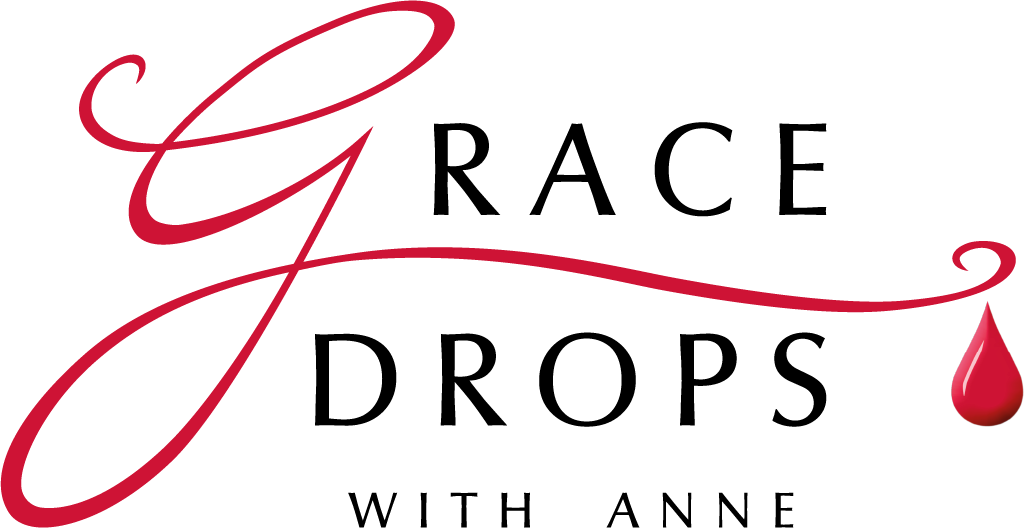Anyone well-acquainted with a healing ministry or prayer counselling will be aware of the importance of forgiveness and repentance in both the life of an individual and in their bloodline. When there are repeated issues that afflict one generation after another after another, then it’s clear dark covenants are still in operation or else unresolved sin has passed down the ancestral line. Some form of complicity, active or passive, is still present in the current generation.
Once identified, these issues are usually simple to deal with: we invite Jesus, through the power of His Cross, to activate the words of forgiveness we speak towards the original perpetrators as well as our words of repentance regarding our ongoing collaboration with the spirits they served.
Quite often, miracles result from this simple request to Jesus to annul the covenants that have come down through our family tree. Sometimes, however, the issue we are facing is not so much a defilement descending down our bloodline but down our faithline.
We forget that we are part of two families—a natural one and a spiritual one. We belong to a family of flesh-and-blood and we belong to a family of faith. And the family of faith passes on just as much corruption and iniquity as any natural family. The faithline is tarnished similar to the bloodline.
Now unfortunately we can be a bit loose in our language when it comes to identifying our spiritual attackers. There’s a tendency, for example, to identify Jezebel, Ahab, Athaliah, Absalom and the like as malevolent spirits when, in reality, they were people who were influenced by and deeply complicit with dark forces. We’d never dream of labelling Joseph, Elijah, Abraham or Noah as malignant powers, even though their actions are as seriously questionable at times as those others we condemn.
Our traditional biblical villains are reframed as hostile spirits, thereby dishonouring people created in the image of God. Our traditional biblical heroes on the other hand are reframed as stars with haloes so luminous we’re blinded to their flaws.
We notice, for example, Ahab eyeing off a lush plot of ground and stealing another man’s inheritance for the benefit of his family, but we don’t notice who did it first. If we judge Ahab, then we must also judge Joseph who disinherited the Egyptians, removed them from their ancestral plots, and gave the finest pastureland in the Nile Delta to his family.
Recently I’ve been trying a new approach in prayer ministry. For want of a better name, I’ve dubbed it ‘faithline cleansing’ and it’s exactly analogous to bloodline cleansing. By ‘faithline’, I mean examining Scripture to find the first recorded person in the family of faith to commit a particular sin.
For dispossession of land by the government, it’s not Ahab but Joseph. He’s also the one who invented forced resettlement, not the Assyrians.
For dispossession by deception, on the other hand, it’s Jacob facilitated by Rebekah.
For slavery, it’s Noah who cursed his grandson Canaan.
For abuse, it’s Sarah. And for looking the other way when it came to that abuse and thereby aiding and abetting it through neglect, it’s Abraham.
For toxic favouritism, think Isaac and Rebekah.
For theft and manipulative cover-up, consider Rachel.
For procrastination so serious when it came to obeying God that, if the delay had not occurred, an entire series of wars would almost certainly have been prevented, pick Elijah.
For putting innocent people in harm’s way and causing fatalities through his deception and half-truths, none other than Abraham.
What about hatred and jealousy? Depends if there’s murder involved. If not, then Jacob.
Conspiracy to murder? Judah.
Torture? David, apparently.
Political cover-up of rape and subsequent neglect and silencing of the victim? David (and no, it’s not in the matter of Bathsheba.)
Now you may have been easily able to identify the various episodes in the stories of the patriarchs, prophets and kings that these comments refer to. But most likely, it will have been quite hard. The accounts of our designated biblical heroes have been spin-doctored by masterful impression managers so that we gain the most positive view of their actions. Unfortunately a lot of those impression managers belong to our own era—they are the translators who always choose the most benign interpretation of a hero’s actions, even when ancient texts like the Septuagint are undeniably harsh.
But, as Jesus said, ‘No one is good except God alone.’ (Mark 10:18 ESV)
And as Paul confirmed, ‘None is righteous, no, not one.’ (Romans 3:10 ESV)
My recent experience says we need to look at faithline as well as bloodline. And we need to forgive those in the family of faith who wrought iniquity, just as much as we need to forgive those in our natural family tree.
There is only one hero in Scripture. His name is Jesus.
This is Grace Drops and I’m Anne Hamilton. May the Holy Spirit reveal your faithline this day.
Thank you to Lorna Skinner of www.riversofmusic.co.uk for the background music.

Dealing with Lilith: Spirit of Dispossession is now available for pre-order.


This is truth! I have been going back over a dream I had years ago where I made a routine visit to a gate that led to a promised territory that had been locked. I could see inside through the chain length gate but couldn’t go in. One day, I was surprised to see it open–the chain linked gate was gone that blocked the wall- archway opening. Now, I could not only see the the promise, I could now access it. I also noticed that there was a spigot and a water hose that used to spew bitter water that was now on the ground in the form of a dead serpent totally dried up on a threshold of new soil and new blades of grass that led into the doorway of promise. I could see the dried scales and all and the connector at it’s tail that used to fit the spigot. I was so excited I ran to tell my family who were residing in a neighborhood of gloom (made up of all the neighborhoods we had lived in–in contrast to “the promise” that was like “Oz” in technicolor through the promised doorway). Long story short, both parents made invalid excuses why they couldn’t go (still hanging on to the past and how it affected their faith) and the LORD told me to not go tell my siblings, but to “Go.” ; they were no longer my repsonsibility as a watchman (“watchwoman” in my case). I went back to the gate and walked through as I saw other believers who did too. One lady had a face weathered from the long wait. It wasn’t just the “wait”, it was also the fight of family lines, faith warring, and generational curses. Thanks Anne for this. (Oh, and any insight on the threshold part of my dream is welcomed.) 🙂
It seems to me like you already have a fair understanding of what the threshold is about. We can explain the wonders of the promise to others, but because the threshold is always about freewill choice, we cannot take responsibility for their decisions, only our own.
Anne, this is so interesting–and I think, spot on. I would love to know how you frame a prayer to cleanse a faithline. Any help would be appreciated.
It’s necessary to know which faithline it is first, so you can be reasonably specific. I suspect, however, that beginning with repentance for rebellion is going to be a good start.
Jessie, the prayers have to be specific to the faithline. See, for example, the prayer in Session 99 (when it comes out) on the faithline in Elijah.
This is incredibly helpful and makes so much sense. We can never deify mankind and turn them all into perfect saints.
We look at these examples and I think it gives us an insight into what is happening in so many churches today. We deify some leaders because we’ve deified their counterparts in Scripture. We don’t question our leaders’ actions – in fact, we’re not allowed to question them – because we spin Scripture to remove the stains on the character of any designated “hero” while making sure everyone notices identical stains on the “villain”. We are all complex mixtures of good and evil and no one should get a free pass because of status.